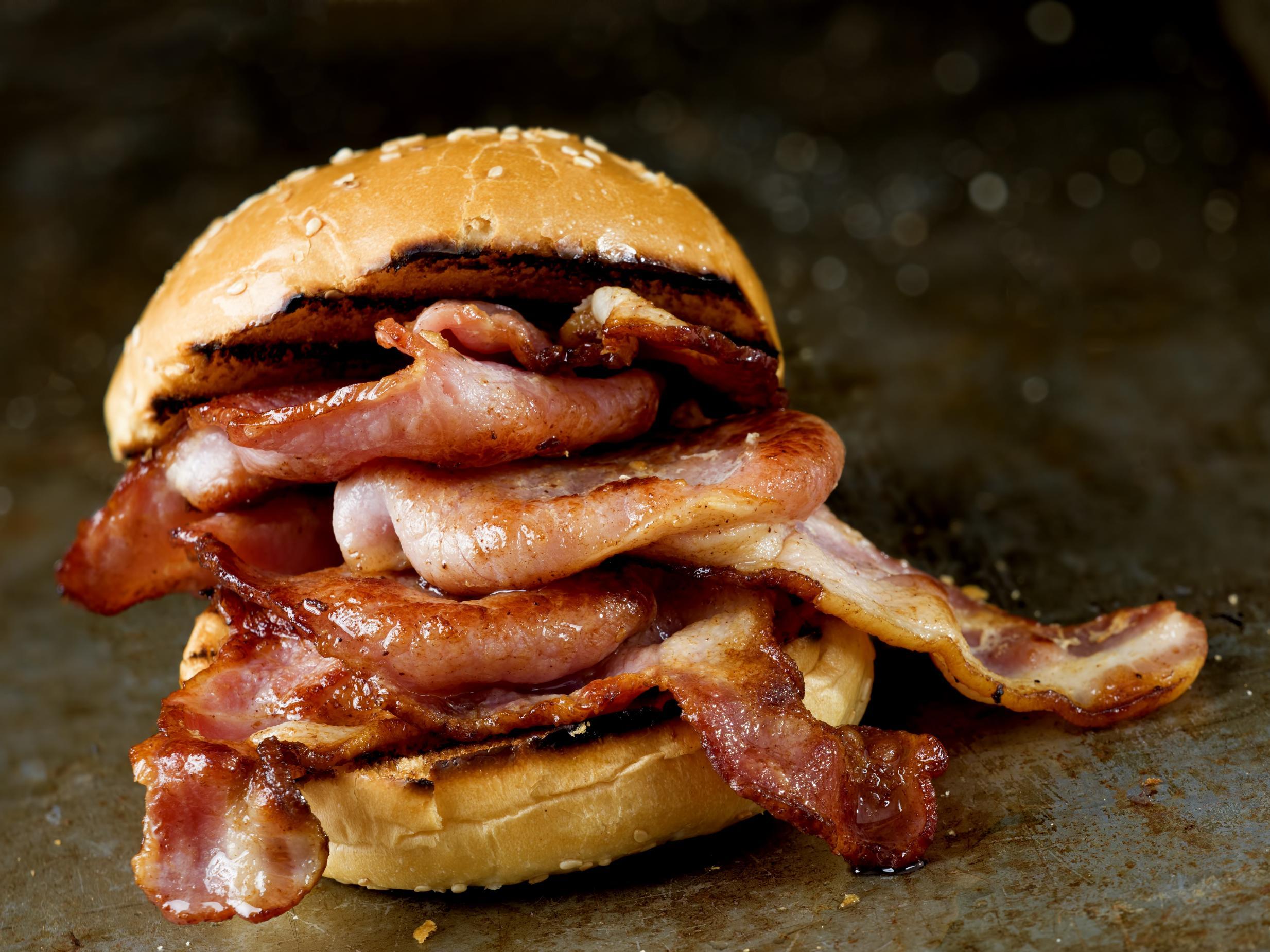Some rashers of bacon contain as much salt as eight bags of crisps, say campaigners
86 per cent contain salt content equal to or greater than seawater

Some bacon being sold in UK supermarkets has a higher salt content in two rashers than the equivalent found in eight bags of crisps, according to a new study.
Researchers from campaign group, Action on Salt at Queen Mary University of London, found some bacon contains 2.84g of salt in just two rashers.
And of 171 bacon products surveyed, 86 per cent have salt concentration equal or greater than seawater.
This is well above the daily salt targets set by Public Health England and has prompted the group to call on the government to set mandatory salt targets for the food industry, or face fines.
Bacon is reportedly the second biggest contributor to salt in the UK diet (after bread), according to Action on Salt, and since a comparable survey in 2012, the majority of supermarkets have increased the quantities in their pork or at least stayed the same.
The saltiest bacon offender was Tesco Finest Unsmoked 8 Wiltshire Cure Back Bacon Medallions with a staggering 5.3g per 100g – the equivalent of a Burger King hamburger in just one rasher and more than twice the salt concentration of seawater.
The least salty bacon overall was the Co-operative’s 8 Reduced Fat Unsmoked bacon medallions with just 1.45g per 100g of salt.
Some bacon contained nearly four times more salt than competitor brands, which Action on Salt says shows that lowering the salt content of bacon is “easily possible”
And even those labelled with ‘reduced salt’ aren’t always a promise of the lowest salt content as the study found some still contained more salt than those which did not display a specific nutrition claim to salt.
Examples include Lidl Birchwood Smoked Reduced Salt Back Bacon (2.13g salt per 100g as sold) vs Waitrose Free Range Unsmoked Back Bacon (1.51g salt per 100g as sold).
The NHS says a diet high in salt can cause raised blood pressure, which can increase your risk of heart disease and stroke and adults should eat no more than 6g of salt a day (around 1 teaspoon). Children aged 7-10 should only have 5g per day, those aged 4-6 just 3g.
A Tesco Spokesperson told The Independent: “The health of our customers is very important to us and we’ve worked hard to reduce salt across our own brand foods.
“Our Tesco Finest Wiltshire Cure Medallions are a leaner cut of meat, produced to traditional curing methods which make them characteristically higher in salt. We offer other bacon products which contain less salt so customers can make the choices which are right for them.”
Sonia Pombo, Campaign Manager for Action on Salt says: “It’s shocking to learn that food manufacturers are still ignoring the voluntary salt reduction targets and putting profits before the health of the nation.”
And Graham MacGregor, Professor of cardiovascular medicine at Queen Mary University and chair of Action on Salt, adds: “Whilst Boris Johnson has pledged to spend millions of pounds on building new hospitals – many of which will treat the many thousands of people suffering or dying from strokes and heart disease, the Prime Minister must be reminded that just one-gram reduction in population salt intake prevents more than 4,000 premature deaths per year in the UK and costs next to nothing to implement.”
Join our commenting forum
Join thought-provoking conversations, follow other Independent readers and see their replies
Comments
Bookmark popover
Removed from bookmarks